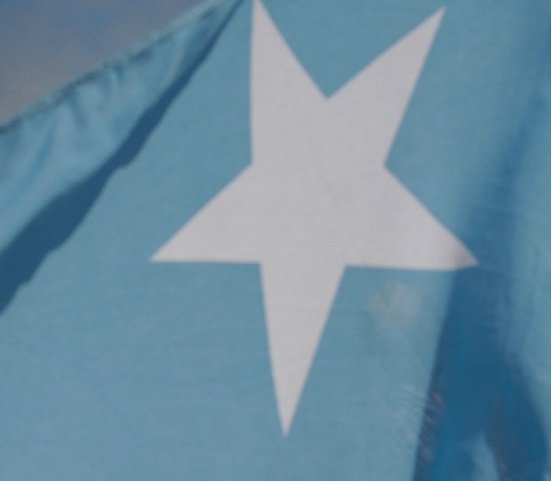By Liban Ahmad
Somalia is a country that has recovered from the failed state status but is still in a fragile state, if one accepts the verdict of the former representative for the UN Secretary General in Somalia, Nicholas Kay. Next year the 4.5 power-sharing mechanism agreed upon at Arta City of Djibouti in 2000 will turn 20 years old.

In a wardheernews essay Dr. Abdurahman Abdullahi (Baadiyow) , an advisor to the Somali Prime Minister, discusses aspects of state failure, its causes and what the “pragmatic” approach to state-building in Somalia can lead to in the near future. Dr Baadiyow has written several books on the Somali political history.
If our founding fathers had the “right understanding of modern state and how to reconcile it with our traditional society” Somalia would have taken a different course to the one it had taken, Dr Baadiyow argues.
The first nine years of Somalia offers a lesson on how a less educated political class imagined the Somali political identity on which the Somali state is based. They conducted two presidential elections, allowed for the introduction of free press that military regime (1969-1991) discontinued for fear of fomenting dissent against it.
The military regime did not only ban political parties, it also abolished the Central Bank Law that limited government powers to print money or use monetary reserves.
State collapse in 1991 brought to the fore inability of more educated political and intellectual classes to facilitate Somalia’s transition into a democracy after 20 plus years of military dictatorship. Dr Baadiyow looks upon Arta Reconciliation Conference, out of which 4.5 formula emerged, as a progress towards state-building.
If intention is the criterion to be used when judging Somali governments formed since 2000, the progress spotlighted by Dr Baadiyow is commendable. If results are the criterion one will use to judge successive pre and post-transition governments, the evidence points to a host of ongoing and multiplying setbacks.
All governments based on 4.5 have placed Somali minorities in a second class citizen status. Belonging to a major clan means more life opportunities; belonging to a minority clan means being vulnerable and deprived. If the plight of more than 40% of Somali people deserves no attention, what is the progress Somalia has achieved since 2000 other than consensus among major Somali clans to disenfranchise Somali minorities politically and economically?
The second setback indicates how the political class’s failure to work together in the national interest has deprived citizens of the opportunity to rebuild Somalia. In 2012, 2013 and 2017 the British government organised three Somalia London Conferences. Those conferences gave Somali political leaders an opportunity to put Somalia on the global post-conflict development agenda to strengthen its institutions to become less reliant on AMISOM.
So far more than 95% of money raised in the name of Somalia gets channelled to AMISOM operations. At the 2017 London Somalia Conference António Manuel de Oliveira Guterres, Secretary-General of the United Nations, stated Amisom “is in Somalia in response to a global threat” from terrorists in the country. The opportunity cost to Somalia when political impasse and transnational terrorism deepens reliance on African peacekeeping force is huge. Continuing on the same road is not a progress.
Somalia does not have an inclusive national army despite successful efforts by the current government led by Hassan Ali Kheire to weed out more than 9000 ghost soldiers in the army, and 6000 ghost civil servants in Mogadishu. The goal to conduct elections based on biometric technology is laudable but hardly attainable as long as there is no support from federal member states and as long as Al-Shabaab controls territories in the Southern Somalia.
Somalia’s partners facilitate the modicum of cooperation among Somali political classes. In southern Somalia, where the largest number of Somali minorities live, conducting elections that empower only major clans will mean giving a new lease of life to the 4.5 power-sharing formula devised to appease Mogadishu warlords. It will be equally misleading to argue federalism is working in Somalia. What many Somalis see is federalism that has been implemented in a manner its originators had not foreseen – absence of a strong central government and lack of decentralisation in territories of federalism advocates.
Other constraints that can render one person, one vote election in Somalia unfeasible include territories designated as disputed territories claimed by Somaliland and Puntland. An instructive lesson from the state collapse in 1991 is, if Somalia cannot survive as a single nation state, there is no way it can survive as nation states in this world of predatory politics. Without having a difficult conversation about our national progress narrative we will continue prizing doublespeak.
Liban Ahmad
Email:[email protected]
We welcome the submission of all articles for possible publication on WardheerNews.com. WardheerNews will only consider articles sent exclusively. Please email your article today . Opinions expressed in this article are those of the author and do not necessarily reflect the views of WardheerNews.
WardheerNew’s tolerance platform is engaging with diversity of opinion, political ideology and self-expression. Tolerance is a necessary ingredient for creativity and civility.Tolerance fuels tenacity and audacity.
WardheerNews waxay tixgelin gaara siinaysaa maqaaladaha sida gaarka ah loogu soo diro ee aan lagu daabicin goobo kale. Maqaalkani wuxuu ka turjumayaa aragtida Qoraaga loomana fasiran karo tan WardheerNews.
Copyright © 2024 WardheerNews, All rights reserved


